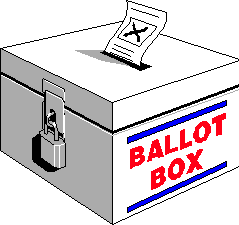
Europe: What does the public really think?
A survey was carried out in late December 1997 for the Foreign Office (and Blairite crony Philip Gould)
|
|
Europe: What does the public really think? A survey was carried out in late December 1997 for the Foreign Office (and Blairite crony Philip Gould) |
Limitations:
The survey wasn't fully representative, only 38% of the sample were in full-time paid work, 2% were unemployed and wanting work, 6% long-term sick or disabled. 11% had teaching or nursing qualifications. Surprisingly, 30% spoke a European language - coincidence or selection bias?People 'still' feel British: 94% do and a majority of these endorse that Britain is still a great country or becoming one again. 66% felt European 'a little/not at all'.
Europe a priority?: Asked for 2 top issues from a list, 17% gave 'Britain's relations with Europe' - higher than interest rates and inflation, and nearly as much as employment. (The NHS, education and crime all polled over 40%).
Results depended on the tone of the question: Pro- & anti- EU questions got corresponding answers! A steady 40% favoured EU withdrawal. But only 31% want Britain in as "it's the best course" and 27% strongly agree that there is no other choice. Only 2% are "very satisfied" with the EU while 43% are "quite satisfied".
Public awareness and perceptions of EU membership: A better test might be instinctive choices of '+' or '-' adjectives to describe the EU - up to 29% picked the top three "positives" (1:3 - economic prosperity, necessary, helpful to British interests) - whereas up to 50% picked the top three "negatives'" (1:3 - bureaucratic, interfering, wasteful).
In a different question, responses split: (benefits) "a lot/some" 48%: "a little/none" 50%, but in a later biased variant about 'benefiting from grants & funds' the equivalent answers compared: 54% vs 44%. Yet a majority (49% vs 39%) perceive that the EU has not made Britain's economy stronger.
The EU scored well in leading (biased) questions mentioning trade opportunities, travel and peace since WW2. Questions promising easy benefits - with no mention of their price or supporting evidence - gave responses for: 'going fully in' (71%), 'co-operating' (surprisingly only 60%), and 'taking a leadership position' (77%).
However the survey revealed how little people knew about the EU - only 12-17% were happy with what they already knew. (38% happy with knowledge re: Westminster). Only 54% knew that the UK paid the EU more than it got back.
Public concerns over sovereignty: Yet when asked if the EU should play at least an equal role in British affairs, majorities firmly favoured national control in most areas. They felt the EU should keep out of: - taxes (69-6%), immigration/asylum (59-9%), health and welfare (59-10%), education (62-9%), culture (52-9%), (un)employment (57-10%), law & order (57-6%). The figures are stated excluding don't knows and those who ticked "Both equal" - which is nonsensical!
Only on pollution (which has an international dimension) was the EU favoured on balance (27-20%). The largest survey scores were on keeping NATO for defence (86%) and border controls (88%). 83% felt that EU nationals' passports should be checked at Customs.
The EU is seen as undemocratic (57%) and Britain as either pushed around (63%) or sidelined (75%). 65% feel we are losing sovereignty and 62% our national identity.
The Euro: "heart" says no, but "head" is impressionable: It is perceived to threaten economic sovereignty and decision making (37 to 44%) but might be accepted if it aided competitiveness or prevented isolation from the larger European economy (33 to 48%). 67% would accept "some" loss of sovereignty if it led to 'more influence' with 69% if 'higher living standards'.
Somewhat misleading - in practice a government would be banned from trying to influence the Central Bank behind the Euro, and free trade treaty rules ensure access to world markets, including Europe's..
A massive middle ground can be influenced: Only 43% had strong views about membership (for: 27% vs 16%) and 57% about the Euro (against: 32% vs 25%).
A nationally untypical 48% vs 46% felt the UK should "join the single currency" yet only 40% vs 27% later felt it would be good to join a "successful" single currency (although untrue this is increasingly a catchphrase)!!
In a more neutral question, 46% preferred to use only the Pound, 24% only the Euro, whereas 27% would tolerate both side-by-side.
Things have moved on a lot since 1997, increasing support both for EU withdrawal and keeping the Pound, with the Euro's continuing problems being reflected in opinion polls. Denmark's experience also shows that their public opposes the Euro on realising that this means losing their currency.
Date this page updated: 17 June 2000